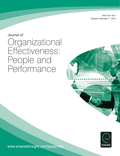Love at second sight – when multinationals encounter Danish social capital
When multinational corporations (MNCs) take over or establish subsidiaries in other countries and institutional settings, their headquarters often bring along employment practices that differ markedly from the local practices implemented at the subsidiaries. The purpose of this paper is to investigate how the implementation of headquarters-originated employment practices affect multinational corporation ability to exploit the value of organizational social capital of the acquired subsidiary.
Using qualitative insights collected over 16 years from a Danish company the paper illustrates how a foreign MNC’s interference with the balanced structure of relations, norms, and roles in a subsidiary jeopardized the value of existing social capital. The paper argues that changes in the collective perception of employment practices create collective responses, constructive or destructive, resulting respectively in the gain or loss of the performance benefits arising from organizational social capital. The results indicate that local management and employees could use organizational social capital as a unique feature of the Danish IR-system when competing with other subsidiaries with different IR-traditions within the same MNC. In the final conclusion and discussion two guidelines and two general propositions for future research on the value of organizational social capital in international takeovers is presented.
The final discussion emphasizes the importance of including employees’ interests when multinational companies make organizational changes – otherwise the benefits of social capital in terms of cooperation and team-work might be is lost. It is also pointed out that the concrete case - organizational changes in connection with an acquisition in Denmark - probably get some very specific reactions from employees because the institutional set-up - the Danish IR-model with a high level of cooperation and flexicurity – gives certain possibilities for reactions. The reactions are likely to differ considerably in other (more liberal) labor market models, hence further comparative studies on the meeting of MNCs and national IR-models are needed.
The article The (un)predictable factor: the role of subsidiary social capital in international takeovers is written by Steen E. Navrbjerg (FAOS) and Dana Minbaeva (CBS). It is published in Journal of Organizational Effectiveness: People and Performance.

